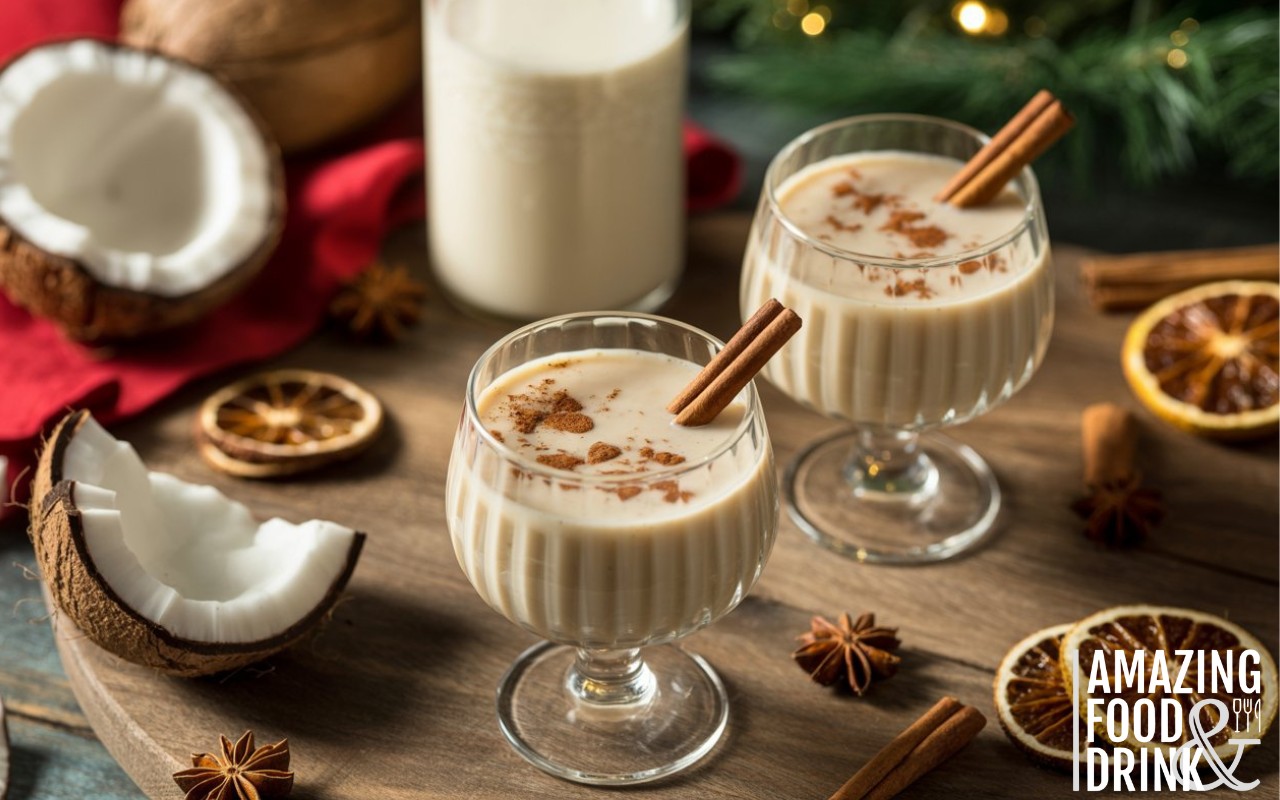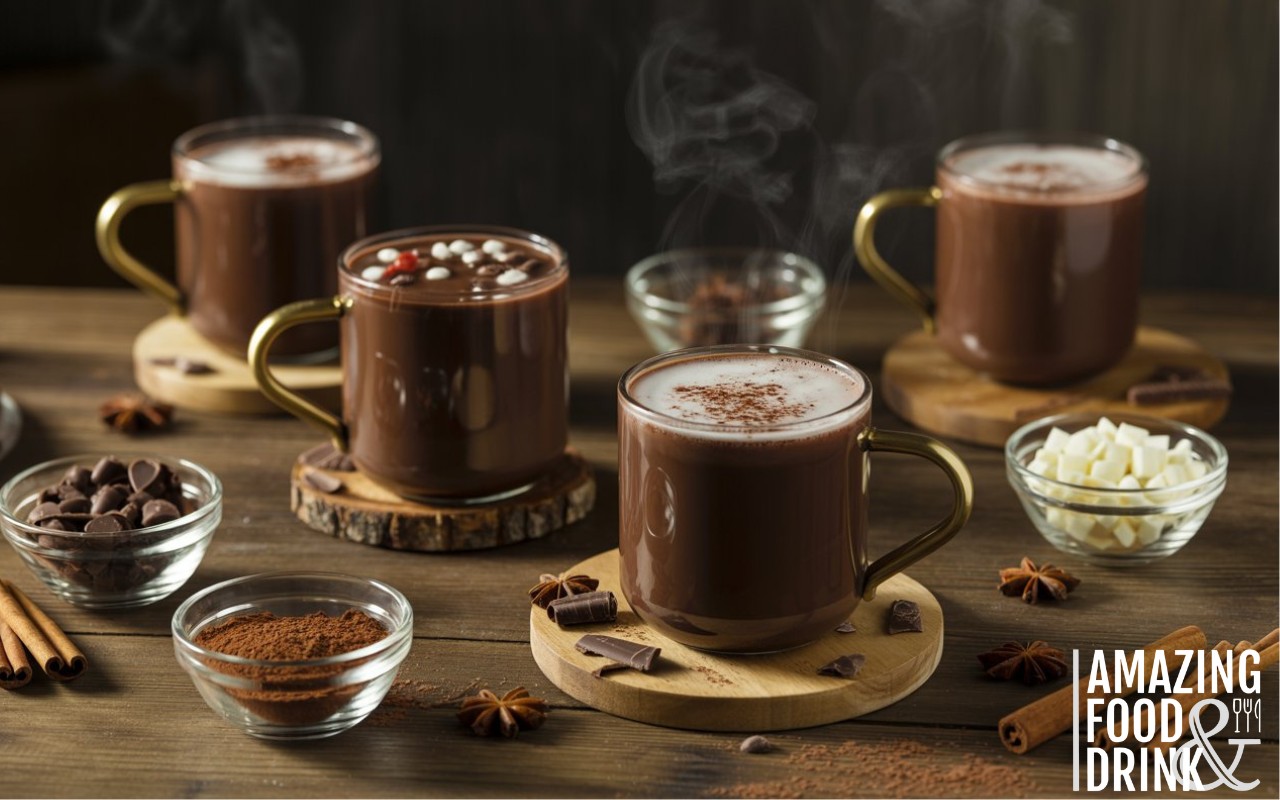Dairy-free coffee drinks have transformed from niche alternatives to mainstream favourites, offering coffee enthusiasts rich flavours without compromising on taste or texture. Whether you’re managing lactose intolerance, following a vegan lifestyle, or simply exploring new coffee experiences, the plant-based coffee revolution delivers exceptional options that rival traditional dairy-based beverages.
The surge in dairy-free coffee popularity reflects both changing dietary preferences and remarkable innovations in plant-based milk technology. From barista-quality oat milk that creates perfect microfoam to rich cashew milk that adds luxurious creaminess, these alternatives have elevated coffee culture significantly.
Table of Contents
- Definition
- Dairy-Free Coffee Brands
- Dairy-Free Lattes at Home
- Dairy-Free Coffee Shop Options
- Dairy-Free Coffee Recipes for Summer
- Dairy-Free Coffee Drinks for Winter
- Plant-Based Coffee Options
- Lactose-Free vs Dairy-Free
What Are Dairy-Free Coffee Drinks?

Dairy-free coffee drinks eliminate all milk products, replacing them with plant-based alternatives whilst maintaining the beloved coffee flavours we crave. Unlike lactose-free options that still contain dairy proteins, these beverages are completely plant-based and suitable for vegans.
The key difference lies in the milk source—traditional coffee uses cow’s milk, whilst dairy-free versions use almonds, oats, coconut, soya, rice, or other plant sources. Modern plant milks have evolved considerably, with many brands specifically formulating barista editions that steam and froth beautifully.
Common plant-based milk options include:
- Oat milk (creamy texture, naturally sweet)
- Almond milk (light, nutty flavour)
- Coconut milk (tropical notes, rich mouthfeel)
- Soya milk (protein-rich, neutral taste)
- Cashew milk (ultra-creamy, luxurious texture)
- Rice milk (mild flavour, naturally sweet)
15 Best Dairy-Free Coffee Brands & Ready-to-Drink Options

The ready-to-drink dairy-free coffee market offers convenience without sacrificing quality. These brands have mastered the art of shelf-stable plant-based coffee beverages that deliver café-quality experiences.
Oat Milk Coffee Drinks
Oatly Barista Edition Lattes lead the oat milk revolution with their signature creamy texture. Their vanilla and chocolate variants provide coffeehouse quality in convenient packaging. The Swedish brand’s innovation in oat processing creates naturally sweet, full-bodied beverages.
Califia Farms Oat Barista Blend offers nitro-infused cold brew options that create cascading foam effects. Their draft lattes combine bold coffee with sustainably sourced oats, delivering satisfying morning fuel.
Minor Figures Oat Milk Lattes bring London coffee shop quality to supermarket shelves. Their partnerships with speciality roasters ensure premium coffee beans complement their house-made oat milk perfectly.
Almond Milk Coffee Options
Starbucks Iced Almondmilk beverages provide familiar coffeehouse flavours with plant-based convenience. Their mocha and vanilla variants satisfy chocolate cravings whilst maintaining coffee prominence.
Blue Diamond Almond Breeze Coffee combines their expertise in almond processing with quality coffee beans. Available in multiple flavour profiles, these drinks suit various taste preferences.
Coconut Milk Coffee Varieties
So Delicious Coconut Milk Lattes offer tropical richness that complements espresso beautifully. Their organic coconut milk creates a luxurious texture whilst adding subtle sweetness.
REBBL Functional Cold Brew incorporates adaptogens alongside coconut milk, creating wellness-focused coffee drinks. Ingredients like ashwagandha and reishi mushrooms add functional benefits beyond caffeine.
How to Make Dairy-Free Lattes at Home

Creating café-quality dairy-free lattes requires understanding plant milk behaviour and proper technique. Each alternative milk responds differently to heat and frothing, requiring adjusted approaches for optimal results.
Essential Equipment:
- Espresso machine or moka pot
- Milk frother or French press
- Quality plant milk (preferably barista blend)
- Coffee grinder for fresh beans
Perfect Oat Milk Latte Recipe:
- Grind 18g coffee beans to a fine consistency
- Extract double shot espresso (30-35ml in 25-30 seconds)
- Heat 150ml barista oat milk to 65°C (don’t overheat)
- Create microfoam using a steam wand or frother
- Pour milk into the espresso with a steady hand for latte art
Pro Tips for Plant Milk Frothing:
- Oat milk froths best at lower temperatures than dairy
- Soya milk requires gentle heating to prevent curdling
- Coconut milk creates naturally thick foam
- Always use barista-specific formulations when available
Complete Guide to Dairy-Free Coffee Shop Options
Major coffee shop chains have embraced the dairy-free movement, offering extensive plant-based options across their menus. Understanding which modifications create the best dairy-free experiences helps maximise coffeehouse visits while ensuring delicious results.
Dairy-Free Syrups & Sauces Available at Coffee Shops

Commonly Available Dairy-Free Syrups:
- Vanilla syrup (classic sweetener for any drink)
- Caramel syrup (different from caramel sauce)
- Hazelnut syrup (adds nutty sweetness)
- Cinnamon syrup (warming spice blend)
- Toffee nut syrup (rich, buttery notes)
- Seasonal fruit syrups (apple, berry varieties)
- Sugar-free alternatives (vanilla, caramel)
Plant-Based Sauces:
- Mocha sauce (surprisingly dairy-free at most chains)
- Chocolate syrup (check ingredients first)
- Simple syrup (basic sweetener)
Items to Avoid at Coffee Shops:
- White chocolate-based sauces
- Caramel drizzles and thick sauces
- Seasonal cream-based toppings
- Standard whipped cream varieties
- Flavoured creamers
Choosing the Right Plant Milk at Coffee Shops

Oat Milk: Creates the creamiest texture, closest to the dairy milk experience. Most baristas prefer working with oat milk for its steaming properties and rich foam production.
Almond Milk: Light, nutty flavour that complements coffee without overpowering delicate notes. Budget-friendly option available at most establishments.
Coconut Milk: Adds tropical richness and natural sweetness. Pairs beautifully with chocolate and vanilla flavours.
Soya Milk: Protein-rich option with neutral taste profile. Steams exceptionally well and provides satisfying texture for hot beverages.
Dairy-Free Iced Coffee Recipes for Summer
Summer demands refreshing coffee beverages that energise without heaviness. These dairy-free iced coffee recipes provide cooling satisfaction whilst delivering essential caffeine boosts.
Tropical Coconut Cold Brew

This exotic blend transforms morning routines with island-inspired flavours.
Ingredients
- 200ml cold brew coffee
- 100ml full-fat coconut milk
- 2 tbsp coconut syrup
- Ice cubes
- Toasted coconut flakes
Method
- Fill tall glass with ice cubes
- Pour cold brew over ice
- Slowly add coconut milk for a layered effect
- Stir in coconut syrup
- Garnish with toasted coconut flakes
Vanilla Almond Iced Latte

Smooth almond milk creates coffeehouse quality with homemade charm.
Ingredients
- 2 shots espresso (cooled)
- 150ml vanilla almond milk
- 1 tbsp maple syrup
- 1/4 tsp vanilla extract
- Ice cubes
Method
- Combine cooled espresso with vanilla extract
- Fill the glass with ice
- Pour espresso mixture over ice
- Top with vanilla almond milk
- Sweeten with maple syrup to taste
Chocolate Oat Milk Frappé

Rich, indulgent treat that satisfies dessert cravings healthily.
Ingredients
- 150ml strong coffee (cooled)
- 100ml chocolate oat milk
- 2 tbsp cocoa powder
- 1 frozen banana
- 1 cup ice cubes
- Dark chocolate shavings
Method
- Blend all ingredients except the chocolate shavings
- Blend until smooth and frothy
- Pour into a chilled glass
- Top with dark chocolate shavings
Hot Dairy-Free Coffee Drinks for Winter
Winter mornings require warming beverages that comfort whilst energising. These hot dairy-free coffee drinks combine seasonal spices with plant-based creaminess for ultimate comfort.
Spiced Chai Coffee with Soya Milk

Eastern spices meet Western coffee traditions in this warming fusion.
Ingredients
- 200ml strong coffee
- 150ml vanilla soya milk
- 1 tsp chai spice blend
- 1 tbsp maple syrup
- Cinnamon stick for garnish
Method
- Heat soya milk gently (don’t boil)
- Whisk in chai spices
- Steam or froth spiced milk
- Pour over hot coffee
- Garnish with a cinnamon stick
Peppermint Mocha with Cashew Milk

Festive flavours create coffeehouse luxury at home.
Ingredients
- 2 shots of espresso
- 150ml cashew milk
- 2 tbsp cocoa powder
- 1/2 tsp peppermint extract
- 2 tbsp coconut sugar
Method
- Mix cocoa powder with a small amount of hot water
- Heat cashew milk to a simmer
- Combine the chocolate mixture with the espresso
- Add peppermint extract
- Top with frothed cashew milk
Plant-Based Coffee Options for Every Taste

Different palates require varied approaches to dairy-free coffee enjoyment. Understanding flavour profiles helps match plant milk choices with coffee preferences and personal taste.
For Creamy Texture Lovers: Oat milk and cashew milk provide richest mouthfeel, closely mimicking dairy’s luxurious texture. These work beautifully in lattes and cappuccinos where foam quality matters.
For Light, Refreshing Options: Almond milk and rice milk offer delicate flavours that won’t overpower subtle coffee notes. Perfect for single-origin coffees where bean characteristics shine.
For Rich, Indulgent Experiences: Coconut milk delivers tropical richness that complements dark roasts beautifully. The natural oils create satisfying luxury without dairy.
For Protein-Conscious Choices: Soya milk provides complete protein whilst maintaining neutral flavour. Ideal for post-workout coffee beverages or breakfast replacements.
Lactose-Free vs Dairy-Free: What’s the Difference?

Understanding the distinction between lactose-free and dairy-free helps make informed choices based on individual dietary requirements and ethical considerations.
Lactose-Free Coffee Drinks:
- Still contains dairy proteins (casein, whey)
- Suitable for lactose intolerance only
- Not appropriate for milk allergies
- Not vegan-friendly
Dairy-Free Coffee Drinks:
- Completely plant-based ingredients
- Suitable for vegans and vegetarians
- Safe for milk protein allergies
- Often more environmentally sustainable
Health Considerations: Those with milk protein allergies must choose dairy-free options, whilst lactose-intolerant individuals can enjoy either category. Environmental concerns often favour plant-based alternatives due to lower carbon footprints.
Best Non-Dairy Milk for Coffee (Comparison Guide)

| Plant Milk | Texture | Flavour Profile | Frothing Ability | Best Uses |
|---|---|---|---|---|
| Oat Milk | Creamy, rich | Naturally sweet, cereal notes | Excellent | Lattes, cappuccinos |
| Almond Milk | Light, thin | Nutty, subtle | Good with barista blend | Iced coffees, light roasts |
| Coconut Milk | Rich, thick | Tropical, sweet | Fair | Cold brew, dessert drinks |
| Soya Milk | Smooth, protein-rich | Neutral, beany | Very good | Hot drinks, protein needs |
| Cashew Milk | Ultra-creamy | Mild, luxurious | Excellent | Premium drinks, lattes |
| Rice Milk | Thin, watery | Sweet, mild | Poor | Iced drinks, allergies |
Professional Barista Recommendations:
- Best Overall: Oat milk for versatility and texture
- Best for Frothing: Cashew milk or barista oat milk
- Best Value: Soya milk for daily consumption
- Best Flavour: Coconut milk for tropical preferences
Frequently Asked Questions
Is coffee naturally dairy-free?
Yes, black coffee contains no dairy products. Coffee beans are plant-based, making pure coffee suitable for vegans and those avoiding dairy. Dairy content comes from added milk, cream, or dairy-based flavourings.
What’s the best non-dairy milk for iced coffee?
Almond milk and coconut milk work exceptionally well in iced coffee. Almond milk provides light, refreshing notes without overwhelming coffee flavours, whilst coconut milk adds tropical richness perfect for cold beverages.
Are coffee shop syrups dairy-free?
Most major coffee shop chains offer numerous dairy-free syrups including vanilla, caramel syrup, hazelnut, and seasonal fruit options. However, avoid thick sauces, caramel drizzles, and cream-based toppings as these typically contain dairy.
How do you make dairy-free coffee taste creamy?
Choose full-fat plant milks like oat milk or cashew milk for natural creaminess. Barista-specific formulations froth better and provide richer texture. Adding a small amount of coconut cream can enhance richness without overpowering coffee flavours.
Which plant milk has the most protein?
Soya milk contains the highest protein content among plant-based alternatives, providing approximately 3-4g protein per 100ml. This makes it ideal for those seeking protein-rich coffee beverages.
Making the Switch: Tips for Coffee Shops and Home Brewers

Transitioning to dairy-free coffee requires understanding technique adjustments and flavour balancing. Success depends on choosing appropriate plant milks for specific brewing methods and taste preferences.
For Home Brewers:
- Invest in barista-quality plant milks
- Adjust brewing strength when using lighter plant milks
- Experiment with different brands to find preferred textures
- Store plant milks properly to maintain freshness
For Coffee Shop Owners:
- Offer multiple plant milk options
- Train staff on frothing techniques for each alternative
- Price competitively to encourage adoption
- Highlight dairy-free options prominently on menus
The dairy-free coffee revolution continues expanding, offering unprecedented variety and quality. Whether motivated by health, environmental, or ethical reasons, plant-based coffee drinks deliver satisfying experiences that rival traditional dairy options.
Modern innovations in plant milk processing have eliminated the compromise between health-conscious choices and indulgent coffee experiences. From morning lattes to afternoon pick-me-ups, dairy-free alternatives provide delicious solutions for every coffee moment.
Embracing dairy-free coffee drinks opens doors to new flavours, textures, and experiences whilst supporting personal health goals and environmental sustainability. The future of coffee culture increasingly includes these plant-based innovations as standard offerings rather than alternatives.



